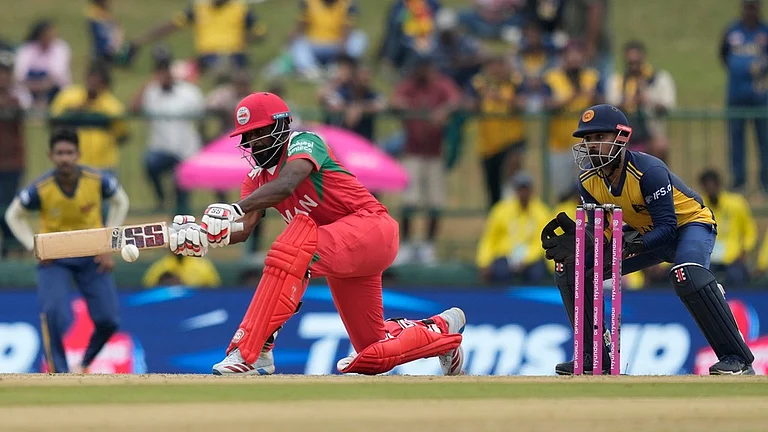Sri Lankan President Ranil Wickremesinghe has started talks with the Opposition parties to persuade them to join all-party government.
These talks are parts of Wickremesinghe's efforts to establish trust in his administration and help drive bankrupt Sri Lanka out of its worst financial crisis ever. The talks are expected to be completed in a week, reported the Daily Mirror newspaper on Friday.
Wickremesinghe on Thursday held talks with the Sri Lanka Freedom Party (SLFP) of former President Miathripala Sirisena.
The main Opposition Samagi Jana Balawegaya (SJB) party, however, will not join the government, the newspaper reported, adding that some of its MPs are contemplating joining the ruling side individually.
Meanwhile, the National Freedom Front (NFF) led by MP Wimal Weerawansa pledged support to Wickremesinghe. He said there were two options before the country today — to lead it down the path of an anarchical situation as in Haiti or to salvage it from the current mess at least at the last moment through consensus.
Weerawansa added that Wickremesinghe had taken genuine steps to resurrect the country from the present abyss and therefore his party was ready to guide that exercise regardless of past political differences or enmity.
The NFF had supported Dullas Alahapperuma in the race for the election of the president on July 20 to succeed Gotabaya Rajapaksa, who resigned after fleeing the country amidst massive anti-government protests.
Minister of Justice Wijeyadasa Rajapakshe on Thursday said that all parties have been invited to form an all-party Government. He said that the government will wait for a limited period of time to see whether the other parties would come forward to join it.
He added that the government seeks to reestablish a sense of trust within the democracy and to resolve the socio-political crises within Sri Lanka with this move.
He further said that rather than a conflict-ridden Parliament, they expect to establish a peaceful Parliament which does not cause rifts on the problems faced by the people.
Sri Lankan MPs on July 20 elected Wickremesinghe as the country's new president, with the majority of the vote coming from lawmakers representing ousted President Rajapaksa's Sri Lanka Podujana Peramuna (SLPP) party. He had earlier resigned as the prime minister in favour of forming an all-party government. He was appointed for the rest of Gotabaya's term, who initially fled to the Maldives and then to Singapore.
There were only two non-SLPP lawmakers in the Cabinet appointed on Friday. Constitutionally, the Cabinet can be extended up to 30 members.
Sri Lanka has seen months of mass unrest over the worst economic crisis, with the government declaring bankruptcy in mid-April by refusing to honour its international debt.
Wickremesinghe on Wednesday said his government’s main priorities are to fix the country’s ailing economy and end the severe fuel shortage that has exacerbated after the last shipment under the Indian credit line arrived in the country in June.
Sri Lanka is going through its worst financial crisis, which has led to the shortage of several essentials across the country, such as edibles, vehicular fuel, cooking gas, medicines, etc. Prices of goods have also skyrocketed. The foreign exchange crisis has also affected the country's ability of import essentials.
The anger against the government's failure to manage the situation —particularly against the Rajapaksa family— converted into anger on streets, leading to massive protests that also saw protesters break into presidents' and prime minister's residences.
(With PTI inputs)


























